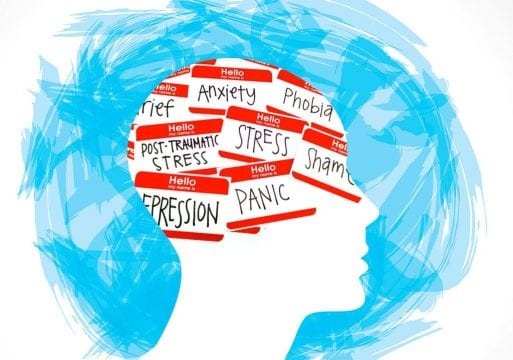
Credit: talkspace.com
It will take some time for us to see the extent of the mental health repercussions of the coronavirus pandemic on the general public. In less than three months, the spread of COVID-19 has created a global, political and public health crisis. The rug has been pulled out from under us all, and we are experiencing collective trauma.
The CDC’s “Coping With a Traumatic Event” manual describes traumatic events as “those marked by a sense of horror, helplessness, serious injury, or the threat of serious injury or death.” The manual goes on to say: “Traumatic events affect survivors, rescue workers, and the friends and relatives of victims who have been involved. They may also have an impact on people who have seen the event either firsthand or on television.” Traumatic stress can overwhelm the nervous system and evoke a range of responses. These can include feeling too much (overwhelmed) or too little (numb), feeling emotionally detached or feeling panicked.
Studies show that depression rates usually soar after infectious disease outbreaks. Individuals may suffer from anxiety, sleep disturbances and an overall lower perceived state of health. Research on influenza and the Ebola virus has provided some insight into the effect of pandemics on the mental health of the general population. The research reports increases in stress, distress, traumatic stress and post-traumatic stress disorder, depression, anxiety, panic and grief. Individuals with mental health issues may be particularly vulnerable to this stress and anxiety.

Credit: tpr.com
To manage your mental health during the COVID-19 pandemic:
- Stay connected. A new study published in The Lancet found that quarantine is linked with post-traumatic stress disorder symptoms, confusion and anger. Stay connected to loved ones despite quarantining. Make use of FaceTime, phone calls, texts and Zoom calls. The voices and faces of your loved ones are crucial anchors during this time of upheaval.
- Consider remote mental health services. Remember that there a number of ways to access remote mental health services. Free crisis lines like SAMSHA National Helpline are available 24/7. Therapy apps like Talkspace and BetterHelp offer lower-cost, remote access to therapists. Additionally, many 12-Step programs are hosting virtual meetings.
- Focus on the things you can control. There’s a lot we don’t have control over these days. Instead of future-tripping, focus on the things you can control. This means: Wash your hands frequently, with soap and water, for at least twenty seconds. Avoid touching your face. Keep your immune system strong by maintaining a healthy diet, exercising, and getting a full night’s sleep.

 Mental Health And Collective Trauma During The COVID-19 Pandemic
Mental Health And Collective Trauma During The COVID-19 Pandemic


 “Hands Up to the Sky” by Michael Franti & Spearhead
“Hands Up to the Sky” by Michael Franti & Spearhead

 Octogenarian Author Jane Seskin Offers a Model for Aging and Living Well
Octogenarian Author Jane Seskin Offers a Model for Aging and Living Well














